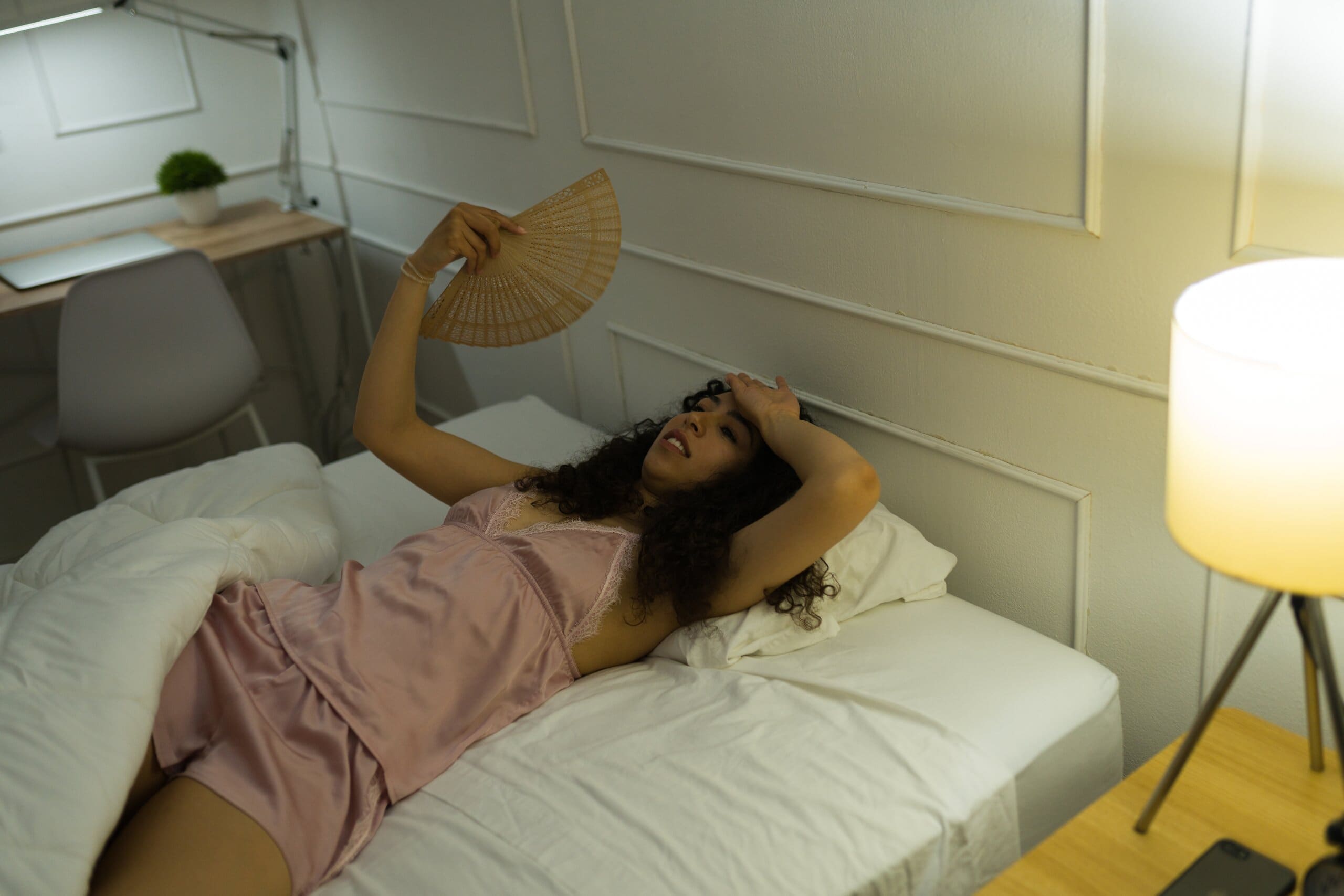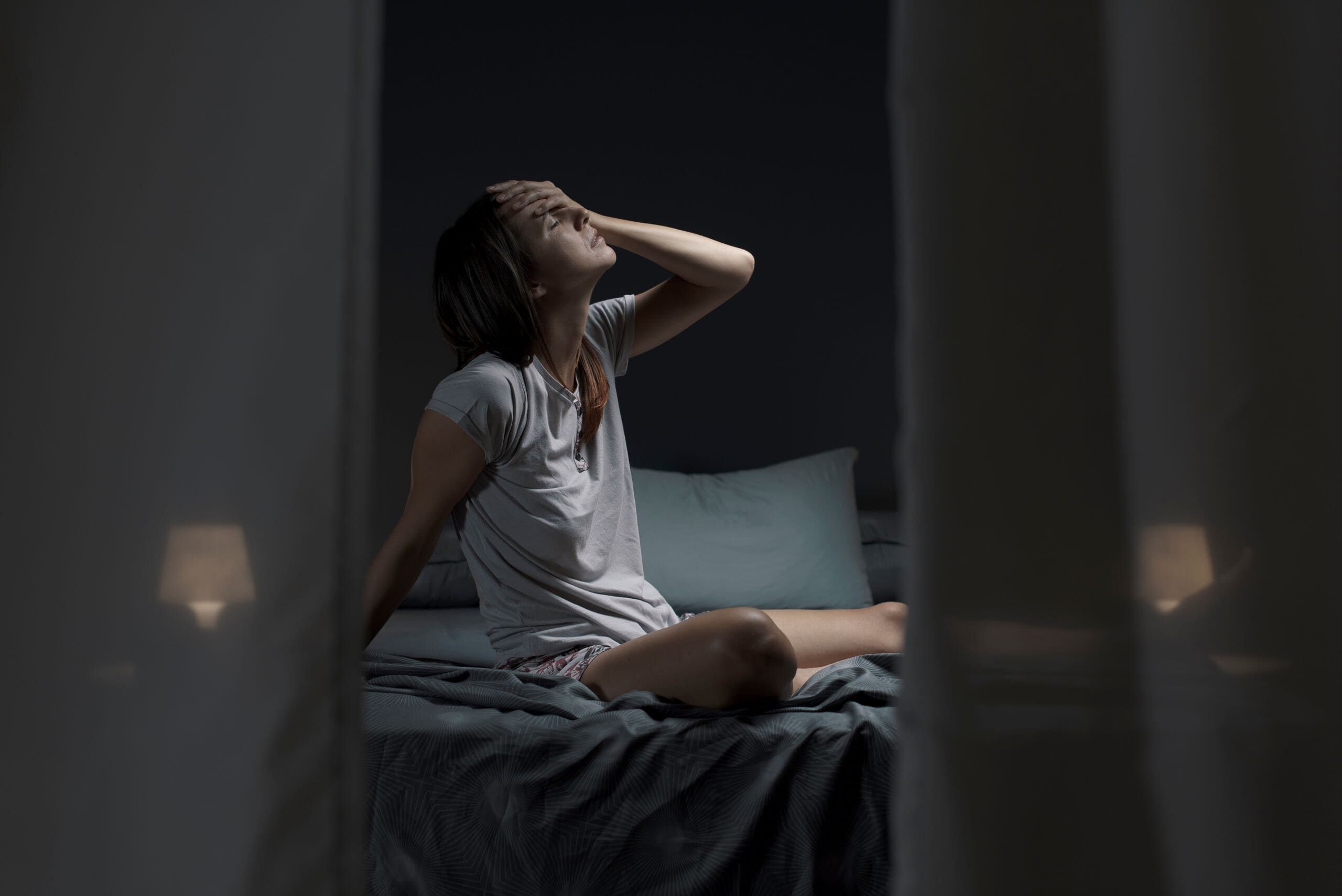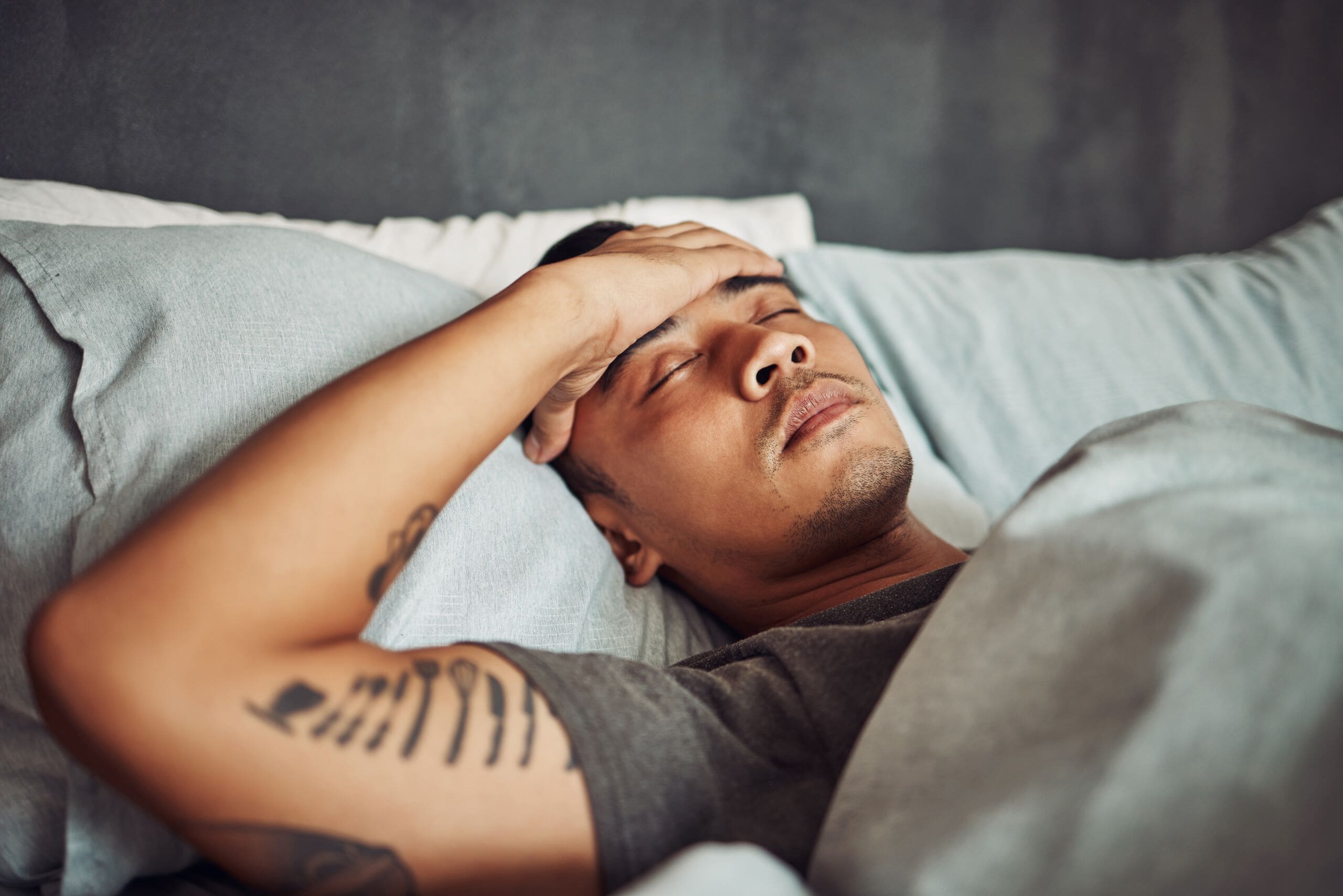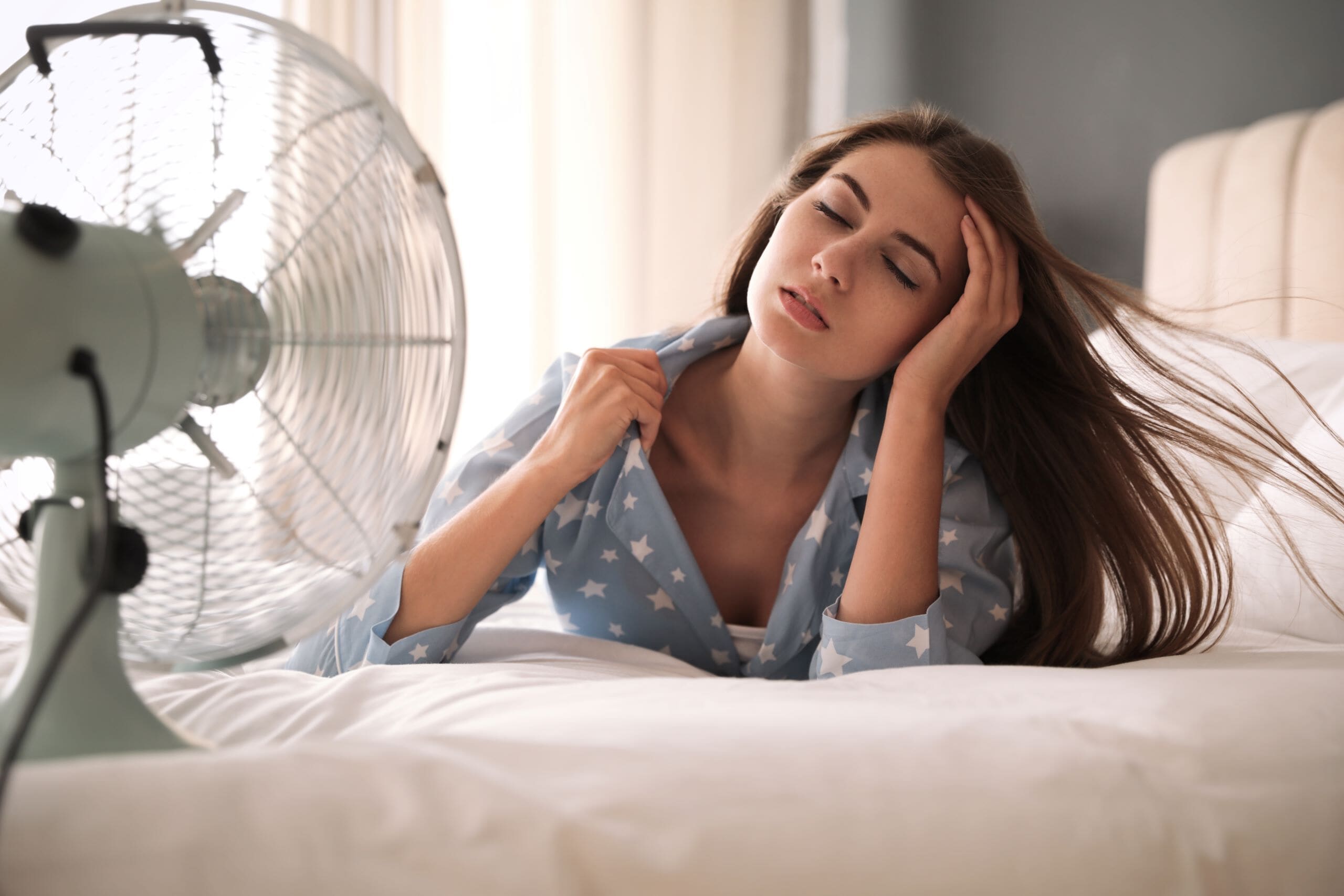From hormonal changes and medications to the weather, there are plenty of reasons why you might be experiencing night sweats. But waking up in a pool of sweat in the middle of the night can seriously hinder your quality of sleep, leading to more serious problems like fatigue and insomnia.
Discover all the reasons why you might be experiencing night sweats all of a sudden, including night sweats in men and in women, and how to prevent them from disrupting your night’s rest.

What causes night sweats?
While sleeping in the heat can be difficult, some people suffer from sweating during the night even when it's cold out. Sweating at night is not usually dangerous or a sign of anything more sinister. However, depending on why you think you’re experiencing them, you may want to speak to your doctor to prevent them from worsening.
The most common causes of night sweats are:
Hormonal changes: Have you ever noticed that you start to experience night sweats before your period? One of the most common causes of night sweats in women is where you are in your menstrual cycle. As estrogen decreases, PMS symptoms will begin, leading to cramps, irritability, and, you guessed it, a sweaty night’s sleep.
Menopause: Similarly, and another common cause of night sweats in women, sweating and hot flashes are some of the most common symptoms of menopause and perimenopause. As we discuss in our guide to night sweats during menopause, these are caused by changes to your levels of estrogen and progesterone, which regulate temperature.
Anxiety: Sleep anxiety can cause you to overthink massively while you’re trying to get to sleep. As your body goes into fight or flight mode, your body increases its temperature and activates its sweat glands, causing you to sweat. Anxiety is also one of the most common causes of cold sweats at night.
Infection: We’ve all experienced the dreaded sweating stage of the flu, and this is a common side effect of a lot of bacterial and viral infections. This fever is caused by your body increasing its temperature in an attempt to kill the infection, while you might experience cold sweats at night when you start to feel better and your body temperature lowers.

Sugary & spicy food: Eating sugary foods before bed can cause you to sweat while sleeping as they cause a blood sugar imbalance, which in turn increases your cortisol levels. This ‘stress’ then enhances your chances of sweating when sleeping. Similarly, spicy foods can cause night sweats as they release capsaicin, which triggers heat receptors in your skin, causing you to think you’re in a warmer environment than you are. This then makes you sweat to try to cool your body down.
Diabetes: People with hypoglycemia (low blood sugar), such as those with diabetes, may experience night sweats due to the insulin medication they take. Diabetes can also cause nerve damage, including autonomic neuropathy, which impacts the sweat glands, causing excessive sweating.
Medication: Many medications can cause you to sweat in your sleep. Antidepressants can cause night sweats by increasing serotonin, affecting the hypothalamus, the part of your brain that manages many bodily functions, including temperature.
Sleep apnea: If you are suffering from sleep apnea, you may experience night sweats due to your body going into fight and flight mode when you’re short of breath. Your muscles are working harder to get you breathing again, and your body releases adrenaline and cortisol, which can also lead to you waking up.
What causes night sweats in men?
Aside from some of the above, night sweats and even cold sweats in men can be caused by levels of testosterone lowering as you age. This change in hormones causes the hypothalamus to think it’s warmer than it is, sending false signals to the body to cool down.
Similarly to how women experience sweating during menopause, this lowering of testosterone causes men to go through a stage called ‘andropause,’ which equally causes sweating when sleeping.

How to stop night sweats
Now you know what causes night sweats, take a look at our top tips for preventing them.
Ditch the chocolate before bed
Now you know what foods cause sweating at night, avoid eating them before bed. While a chocolate treat in the evening might be the perfect way to relax, try to leave at least 2 hours between your last sugary snack and heading to bed.
In a healthy person, it will take 2 hours for insulin to get to work and get your blood sugar back to normal, preventing low blood sugar and night sweats.
Don’t exercise in the evening
Exercising before bed can hinder your chances fo getting good night’s sleep for a number of reasons. Not only does it release endorphins which, while they make you feel good, keep you awake, but it also stimulates your nervous system, raising your heart rate and increasing your body temperature.
Try to stick to morning or early evening workouts, leaving the rest of the evening free for you to wind down and relax with a good bedtime routine.
Invest in a cooling mattress or topper
If you’re suffering from night sweats regularly, consider if your bed set-up allows for airflow. Lots of older foam mattresses trap heat and prevent air circulation, leading to a warmer sleeping environment that causes overheating.
Consider switching to a pocket spring mattress, which allows for airflow between the springs, or even a cool gel mattress, which actively draws heat away from your body for a cooler sleep. This will offer a cooling sensation that means you don't have to run your fall all night. You can also read our guide on the best cooling mattresses to find one that will help you manage your sweating.
Switch to breathable bed linen
The type of bed linen you use can also cause you to get hot and sweaty at night. Certain materials are better at encouraging airflow, such as cotton, while wool or flannel can keep you a little too cosy.
Cotton bed sheets can wick away excess moisture, keeping you fresh and dry, while you can even find specialist cooling bedding designed to actively cool you down as you sleep. Our guide to cooling bedding for hot sleepers will help you find the perfect sheets to help you stay fresh all night long.
Manage the causes
If you know what causes your night sweats, such as menopause, diabetes, or sleep apnea, speak to your doctor about managing your condition. In turn, you’ll be able to manage your symptoms, such as sweating in your sleep.
Treatments like HRT for menopause can reduce night sweats by up to 90%, while checking your glucose levels before bed if you’re diabetic can help you prevent them from dropping too low, causing night sweats.
As mentioned, investing in a cooling mattress, breathable bed sheets, and lighter duvets can help you manage sweating so much in your sleep. With our free next day delivery service, you can enjoy a cooler, fresher night’s sleep as soon as tomorrow!











